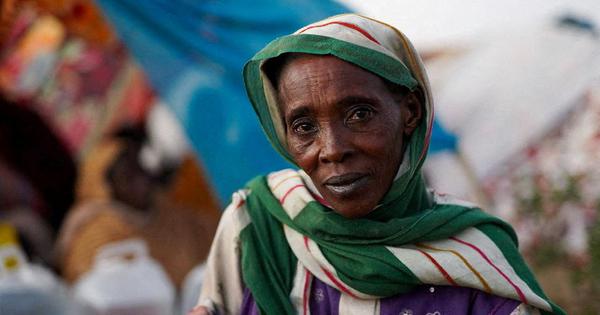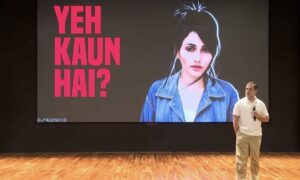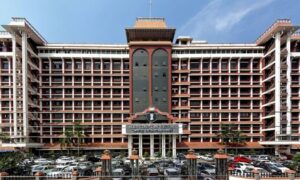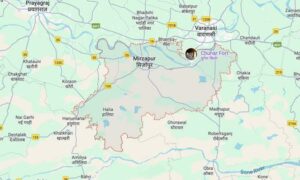
The horror unfolding in Sudan, centered on the fall of the city of El Fasher last week and the de facto partition of a country, is a tragedy that should have galvanised global outrage and action. Instead, it is met with muted statements, diplomatic fatigue and moral invisibility.
How can a war that, by conservative estimates, has killed more than 150,000 people, displaced over 15 million, and witnessed civilian massacres and ethnic cleansing go almost unaddressed in real time? Why is Sudan sliding into a full-scale famine, with 30 million people facing starvation as crops fail, aid convoys are blocked, and entire communities are cut off by relentless fighting?
To answer these questions, we must confront a series of uncomfortable truths: that this is a Muslim versus Muslim war, not a simple good versus evil or Muslim versus Christian framework; that the major foreign power driving the conflict is not the United States, Russia, or China, but the United Arab Emirates; that the weapons are crude and intimate, guns, machetes, paramilitaries, not fighter jets and missiles; and that the very body charged with ensuring global security, the United Nations Security Council, lies in a state of paralysis.
The conflict is primarily between the national army, the Sudanese Armed Forces, and the paramilitary Rapid Support Forces, both drawn from the Sudanese Muslim population. Thus it does not fit the dominant global narrative of conflicts defined by religion across civilisational lines. That means the media, policymakers, and publics find it harder to categorise, respond to, and sustain outrage about it.
Many in the West understand conflicts that pit Muslims against non-Muslims or great powers against each other and act accordingly. Sudan is messier. It is an intra-Muslim war, regional, brutal, and barely registers in the dominant geopolitical frames. The crisis in El Fasher, where hundreds of civilians have been executed, hospitals raided and mass graves uncovered, illustrates this brutal form of violence.
Satellite images and verified videos paint a harrowing picture of door-to-door mass killings in the Darfur region of war-torn Sudan as the Rapid Support Forces paramilitary rebels captured a key city in the region.
Read more: https://t.co/uhdwfXNuWh pic.twitter.com/dn34vansyJ
— ABC News (@ABC) October 31, 2025
Which external power holds the leverage? The real linchpin is the United Arab Emirates. Reports suggest that the Rapid Support Forces is being supported, armed, and enabled by the Gulf states, turning the war into a regional proxy conflict under the radar. This fact muddies the language of great power confrontation.
It also dampens wider media and public attention because the war does not map onto familiar Cold War or China-US frames. The UAE’s involvement is seldom at the center of debate, which means accountability, sanctions or even serious discussion remain limited.
Another reason for the world’s indifference is the nature of the weapons and the fighting. There are no sweeping missile barrages, no aircraft dogfights, no grand theatre of destruction. Instead, the fighting happens in neighborhoods, hospitals, mosques, and displacement camps. The Rapid Support Forces and the army fight face to face, house to house, using guns and machetes, sometimes even camels.
They execute civilians, loot hospitals, and force mass displacement. This intimacy of violence tends to be less visible, less spectacular for global media, and harder to anchor in military narratives. It is ugly, low-tech, and relentless. The brutality goes under the radar because it lacks the visuals that drive headlines.
Then there is the international response, or lack thereof. The United Nations Security Council sits in a coma. Drafts are floated, statements issued, yet there is no robust demand for access, no credible pathway to protection, and no enforcement. The council’s paralysis is all the more striking given the scale: hundreds of thousands of lives lost, millions displaced, and whole regions sliding into famine and state collapse.
Yet the world remains inert. Humanitarian agencies call for action, and yet meaningful pressure is absent. When the body designed to prevent mass atrocities remains inactive, the signal is clear: impunity. The Rapid Support Forces seems to know this.
🔴🇸🇩#Sudan#Famine is confirmed in El Fasher and Kadugli towns and expected to persist through January 2026. Famine is characterised by a total collapse of livelihoods, starvation, extremely high levels of malnutrition, and death.
After 30 months of conflict and insecurity,… pic.twitter.com/YzfzPk5rZH
— The Integrated Food Security Phase Classification (@theIPCinfo) November 3, 2025
For Sudan, this means devastation and disintegration. El Fasher, the main city in North Darfur, has fallen to the Rapid Support Forces control after a prolonged siege. Reports point to mass killings, targeted ethnic violence, and an exodus of tens of thousands of civilians. The humanitarian system is collapsing as aid access is cut off, hospitals are looted or destroyed, and displaced populations multiply.
And yet the global community watches, offers regrets, but stops short of action.
This silence carries grave consequences. It normalises the idea that large-scale civilian killing and displacement can proceed while the world shrugs. That sets a precedent for future atrocities. It undermines the credibility of human rights institutions. If Sudan is allowed to descend into carnage without major consequences, then the rhetoric of “never again” becomes empty. The risk of de facto partition rises: the Rapid Support Forces’s consolidation of Darfur may lead to a permanent fracture of Sudan, with devastating implications for regional stability.
But silence is not inevitable. What could change the calculus?
The humanitarian situation in Al Fasher and other parts of Sudan is nothing less than catastrophic. World leaders must act to end the indiscriminate killing.
Statement attributable to Mirjana Spoljaric, ICRC President 👉🏽 https://t.co/1fZOzKjUo6 pic.twitter.com/YOeqRVANak
— ICRC (@ICRC) October 31, 2025
First, the international media and civil society must reclaim the narrative. When atrocities are framed not just in numbers but through the stories of ethnic massacres, hospital attacks, and displaced mothers and children, the urgency becomes human. When the war is explained as a tragedy among Muslims, fought with machetes and guns, the world cannot look away so easily.
Second, targeted diplomacy must focus on the enablers, not just the fighters. The supply chains, Gulf financiers, and arms flows that sustain the war must be investigated and disrupted. The UAE’s involvement must be critically scrutinised and sanctions must follow. Without that, the war will remain fueled from the outside even as it destroys lives inside Sudan.
Third, the United Nations Security Council must be forced out of its coma. A concerted push by African states, the Arab League, and human rights coalitions should demand action: safe corridors, refugee protection, an international commission to gather evidence of war crimes, and an arms embargo. Words have been said, but action is absent.
Fourth, humanitarian agencies must be empowered to deliver aid and to document the atrocities. Access must not only be promised but enforced. The siege of cities like El Fasher and the mass displacement into surrounding towns show that the urgency is already beyond overdue.
Finally, the world must recognise that conflicts not framed by religion or great power rivalry can still demand moral and political attention. Sudan is a test case: a major humanitarian disaster unfolding without the familiar symbols that trigger global mobilisation. It forces us to confront an uncomfortable question: do we only care when wars fit our mental scripts, or when human lives are being erased regardless of who kills whom?
The world’s silence is not neutrality – it is consent. If it continues, it will not just be Sudan that is lost, it will be the moral credibility of the global community itself. The women and children being killed in El Fasher do not need another statement. They need the world to stop pretending that silence equals peace. They need action.
Ashok Swain is a professor of peace and conflict research at Uppsala University, Sweden.
📰 Crime Today News is proudly sponsored by DRYFRUIT & CO – A Brand by eFabby Global LLC
Design & Developed by Yes Mom Hosting






